Part 5: How to destroy a series
And now we reach the part of the series that actually spawned the whole idea. Lemme ‘splain. No, there is too much. Lemme sum up.
As most know, I am a HUGE Torchwood fan. Most particularly, I’m a huge Ianto fan. And any fan of Torchwood will tell you that the most recent season, Children of Earth, was very controversial, namely because they killed off our beloved teaboy. (see, toldja there would be spoilers!)
I watched the news of this event explode over Twitter, to the point where Ianto Jones was the top trending topic. This one single moment swept through the fandom like a nuclear bomb going off. People were crying (Ok, I admit I cried too), and frothing at the mouth, and threatening poor Russell T. Davies, and swearing they were never ever EVER going to watch another episode of Torchwood as long as they lived, yadda yadda.
And it got me to thinking. Did they just break their own series? Had they finally done the one thing the fans couldn’t accept? Would they really NEVER come back to the franchise?
Which led, obviously, to “what does it take to destroy a series?” And between Theo and I, we came up with two main causes of series implosion.
Betrayal
The first one, as illustrated by Torchwood, is betrayal. In writing a series, the author creates an implicit contract with the reader.
“I (state your name) do solemnly swear to entertain the masses by providing a gritty urban fantasy story involving the trials and tribulations of one Jorge the psychotic zombie marmoset.”
When the author violates this implicit contract, the fans get tetchy. This can happen in a variety of ways, but I think most often crops up when a favorite character is killed, or is otherwise changed into something different from what he was before.
Using the Torchwood example, we should know that at the end of their second season, they killed off not one, but TWO main characters. Everyone was stunned! Horrified! And yet, they all came back to watch Children of Earth. Why, then was killing Ianto in season three so different? My guess is that it was a “last straw” type of sentiment. Yes, the fans could adjust to killing off Owen and Tosh (if they had to), but to then further decimate the team immediately after was more than their grief centers could bear.
Does this mean that an author should never kill off a beloved character? Of course not! G.R.R. Martin has made killing people an art form. (that totally didn’t sound right) But there is a limit to how much “change” a fanbase can tolerate. If Jim Butcher killed off Harry Dresden, and continued the rest of the series with some other main character, no one would be very happy about it. The contract (to provide stories about a wizard from Chicago) would be null and void. (not to mention that the series title, The Dresden Files, wouldn’t make any sense then)
For another example, please consider Laurell K Hamilton’s Anita Blake series. It is almost universally accepted that the first nine books of the series have a very different flavor than the books that followed. They went from a monster-of-the-week urban fantasy into almost pure erotica. A huge leap in genre! And consequently, some of the original fans felt betrayed. They felt that LKH had violated her contract by changing genres into something they didn’t want to read. They abandoned Anita and her boys in favor of other things, series that were more along their own tastes.
And that is the key to a “betrayal” scenario. Betrayal is about taking out the heart of a story. It's about breaking a contract with the audience. Authors, directors, so on, do things we dislike all the time but they still can make sense within the context of the contract.
As a side note: Even with minor changes or character developments, there will always be fans who scream and wail that the author betrayed them/killed off their favorite dust bunny/destroyed the perfect love interest/etc. (“OMG, Jorge would NEVER dye his fur blue, U suck, I h8 U 4evr!!!11!”) You can’t please all the people all of the time, and you shouldn’t try. That way lies madness.
Second side note: As a writer, I see what RTD is doing with the Torchwood series, and though I (the fan) shall always mourn Ianto, I (the writer) am anxious to see where he takes it from here (provided the BBC gives them a fourth season).
Apathy
Another surefire way to kill a series is through apathy. Whose apathy? Well, it can be the fans’ apathy, or it can be the author’s.
First, a definition of apathy, per dictionary.com: 1. absence or suppression of passion, emotion, or excitement. 2. lack of interest in or concern for things that others find moving or exciting. Or, in layman’s terms “Who cares anymore?”
Apathy happens when someone loses interest. Why do they lose interest?
Well, fans can lose interest when years and years go by between series installments. We are used to insta-society. Microwaves spit out food in 30 seconds, you can watch movies instantly on your computer via different sites, and dangit, an author should be able to churn out a book in 30 days!
Ok, ok, not everybody is like this. In fact, most fans are very understanding when it takes a bit longer than planned to generate the next tale of Jorge the psychotic zombie marmoset. However, when “a bit longer than planned” turns into five years (or ten) then the fans have most likely moved on. Even the most diehard and rabid of Jorge’s fan club have to wonder why they keep hanging around, waiting and waiting and waiting. Without even a small dose of Jorge to keep the addiction current, they may find new fixes.
They can also lose interest when the story goes on and on and on and nothing happens. The hero learns nothing, the conflict is never resolved, and that fruitcake on Jorge’s kitchen table never gets eaten. There is a tricky balance between being faithful to your character, and being stagnant.
So, what if it’s not the fans that have grown weary, but the author? It happens. After thirty some odd years of churning out the same characters over and over, it’s possible that an author might start running out of ideas (or even the will to live). So, what is an author to do? It often seems that they keep trying to dredge up stories out of loyalty to the fans. The problem with this is that the stories can be sub-par, or even “jump the shark” so to speak. The solution would be to obviously end the series before it reaches this point of ennui for the author, but we can’t always predict when it will spring.
Trust me, however, the fans will notice. (They’re very smart that way, pesky little buggers) When the author’s heart is no longer with their characters, the readers will also drift away.
And what have we learned, children?
Writing a series is HARD! You have to think about all this STUFF, or nobody will want to play with you anymore!
Ok, no, not really.
The good news is, for most of you who are contemplating writing a series, a lot of this you’ll do instinctively. Because you’ve read series before (You have been reading, haven’t you? Santa is watching you.), or even watched one on TV, you have a basic understanding of how one goes together. You’ll know when it just feels right or wrong, even if you can’t put your finger on why. Hopefully, this little blog series of mine will help you put a name to that niggling impulse at the back of your mind that says “Hey, there’s something a bit off here.”
And I think this wraps up my babbling. In the next few days, we’ll be returning you to your regularly scheduled insanity. Please let me know if you enjoyed/hated this, and if there is anything else you’d like to see me rant on in the future.
Tuesday, September 8, 2009
Subscribe to:
Post Comments (Atom)

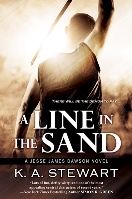
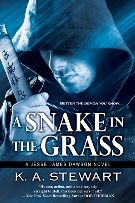
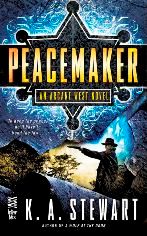
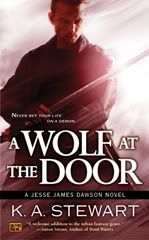

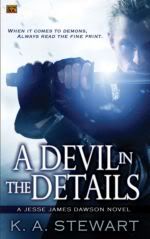
11 comments:
"They can also lose interest when the story goes on and on and on and nothing happens. The hero learns nothing, the conflict is never resolved, and that fruitcake on Jorge’s kitchen table never gets eaten. There is a tricky balance between being faithful to your character, and being stagnant."
Wheel of Time, 'nuff said!
You are not the first person to mention that one. ;)
Very interesting. I'm glad you used Torchwood as an example. RTD has always been one to push the boundaries, as it were. It was sad that he killed Ianto off but, let's face it,it got people talking! I have no problem with much loved characters being killed off if it serves the story.
I've read and given up on series because they have exceeded their sell-by date. The term 'flogging a dead horse' comes to mind with a few. It's as if the author is trying to squeeze the maximum out of a dying franchise and the plots get more and more absurd and the characters become caricatures. One of the writers who really has taken this to a new level is P.C*rnw*ll. Sc*rp*tt* should've retired years ago before she and her dreadful niece started getting on readers' nerves.
I am not an writer, but I've really enjoyed reading this series. It has helped me get a better understanding of why I love some stories and am disappointed in others.
By the way, I could not sleep after watching the last episode of Children of Earth. I could not believe they killed Ianto. However, once my shock wore off(and my tears dried), I started to get excited about what is coming next.
I'm glad everyone enjoyed this! So glad to see so many new "faces" coming to visit too.
And yes, I hope the BBC gives Torchwood another run, because I'd hate to see it end on that note. (though it could, quite nicely)
I *had* to tune into this, because this right here is the main reason I avoid series. So few of them end well that I don't want to get emotionally invested in something I know is likely to disappoint or betray me. You know, like keeping a chimp for a pet. Sure, it's cute at first and you can dress him in clothes, but eventually, maybe he's going to turn on you and rip you apart limb from limb.
Sorry, that was a tangent. But anyway, that's why I avoid series. I'll read the first book, but I rarely will read anything after.
well you've already ruined the Jorge story line for me. I'd never read that series now.
Josh
You would if I renamed him Josh. ;)
Great stuff! I can't remember if you touched on this, but I think another one of the reasons why a series can jump the shark is the pressure. With each book, the MC must face greater danger and worse odds and ZOMG it has to be more exciting than the last one. Unless a writer had a really good plan from the beginning, I think it becomes very difficult not to up the excitement each time without getting ridiculous. Or so I'm finding in a couple of the series* I'm reading (and subsequently getting annoyed with).
*WTH is the plural of series anyway?
I will not stop watching Torchwood by any means. But my feeling is that it's fine, even good, to kill off characters...if it serves some purpose and you feel the weight of it. My feeling is that that was not the case with Ianto, and to a degree Tosh and Owen. We know from Dr. Who, that RTD is capable, but I didn't see it in COE. Did Jack actually do anything different because his love had died? He left, which could show the effects next season, but I didn't feel they really played out the effects of Tosh and Owen beyond looking for replacements, so I've lost a little faith there. I've watched enough Joss Whedon shows to know that it is possible to kill characters without alienating your fans. (Of course it is true that some people will never be okay with it.) Okay that was long winded. Liked the series blog:) Faith
For me, Torchwood died with season 2 and I never bothered with "Children of the Earth".
Because what I loved about Torchwood was the interplay between the whole team, not just Jack and Ianto. My favourite character was Owen. The chemistry between him and Gwen in season 1 was amazing, more sizzle than Jack and Ianto, though I liked that pairing a whole lot, too.
However, season 2 destroyed everything I had enjoyed about the series by having Gwen get engaged to Rhys (even though the relationship was already dead at the beginning of season 1) and pretending to love him and by sidelining Owen and apparently pairing him off with boring Tosh, even though the two had no chemistry. Oh yes, and in the bargain they turned likable Martha Jones from Doctor Who into an arrogant and annoying person. I kept watching a few episodes into season 2, hoping it would return to the show I had loved. But first they really let Gwen get married to Rhys (I had hoped for a last minute save at the altar) and then they did the unthinkable and uselessly killed off Owen, the best character and best actor on the show. And Tosh, too. And they're not even properly mourned but replaced almost at once.
As for "Children of the Earth", I was stunned to hear that a fan favourite like Ianto was killed off, but I have a bit of trouble with the outcry considering that hardly anyone complained about Owen and Tosh, even though both were more important characters than Ianto. What bothers me far more is that "Children of the Earth" turned Jack, who used to be a wonderful character, into a man who murders his own grandchild. And I hear very few people complaining about that either. Never mind that Jack is also an incompetent leader who lets three of his teammembers get uselessly killed.
So IMO Torchwood is definitely a case of audience betrayal, because the Torchwood we were promised in season 1 is not the show we got in season 2 and 3. In season 1 we get a lot of sexual fluidity, season 2 and 3 basically extoll the virtues of gay and straight monogamy. Season 1 seemed to have the message that Torchwood's main problem was a lack of trust between the team members. Plus, season 1 showed that relationships of teammembers with outsiders always go disastrously wrong and that in the end all the team had to rely on was each other. Yet in season 2, they marry off a core team member to an outsider, bring in another outsider (Martha), besides Jack seems to have learned nothing from season 1 and still doesn't trust his team. Plus, he turns into a complete bastard who tortures people without a shred of evidence.
Finally, if RTD wanted to present Torchwood as a show where characters are disposable and can be killed off at any time, he should have killed someone off in season 1. And no, Suzy doesn't count, because we barely had time to know her before she died. What is more, RTD now says "Dead is dead. Ianto (and presumably Owen and Tosh) aren't coming back", but at the end of season 1 Rhys - the most useless piece of character deadweight ever - is killed on screen and brought back to life with a very flimsy explanation. And if any character ever deserved to be killed off, it was Rhys.
Torchwood season 1 was a wonderful show. Unfortunately, it morphed into something utterly unpleasant in season 2 and 3. As for season 4, what will they do? Owen, Ianto and Tosh are dead, Jack apparently took off to parts unknown and Gwen is playing happy family in her Stockholm syndrome marriage. Do they honestly think anybody will ever care about any new characters they bring in?
Frankly, they should have stopped after season 1.
Post a Comment